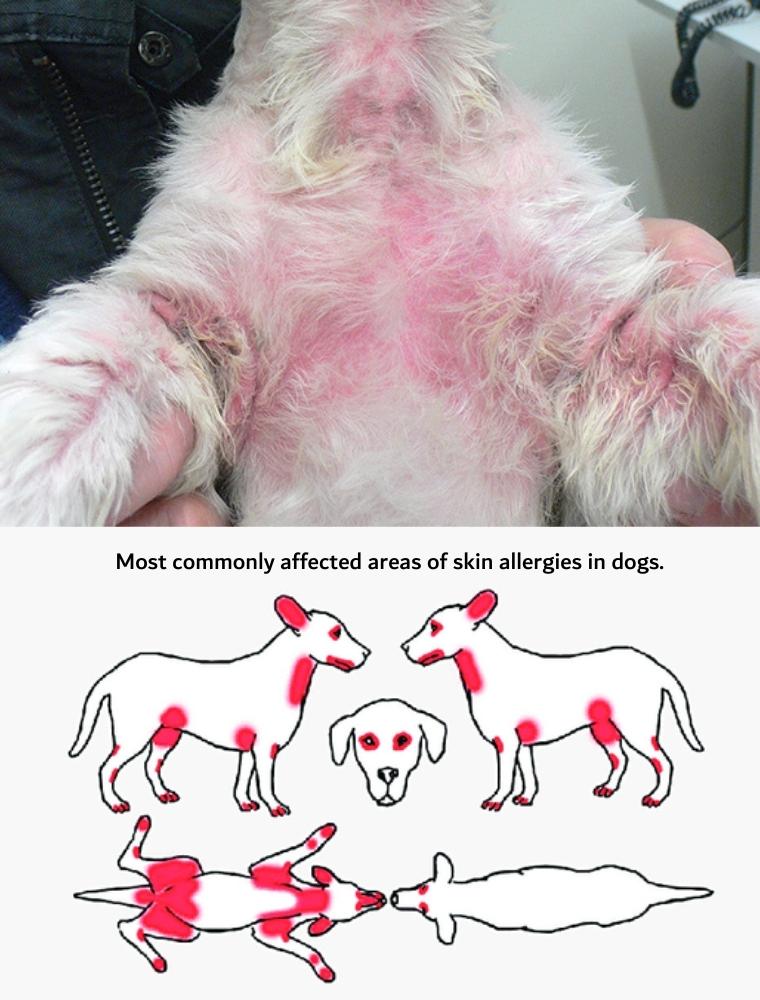Great Advice To Selecting Collagen For Dogs
Great Advice To Selecting Collagen For Dogs
Blog Article
What Are The Advantages Of Glucosamine And Chondroitin To Joint Health In Cats And Dogs?
Glucosamine and Chondroitin, two supplements commonly utilized by cats and dogs are able to improve and maintain joint health. These are their applications and advantages.
Glucosamine
Cartilage Repair and Formation
Glucosamine is an essential component of healthy cartilage. It is found in the fluid surrounding joints. It assists in the repair and formation of cartilage, by stimulating the production of glycosaminoglycans.
Benefits: It can help in reducing the degeneration of cartilage in joints, thereby alleviating arthritis and improving joint function.
Anti-inflammatory Effects:
Function: Glucosamine has anti-inflammatory properties that reduce inflammation of the joints.
Benefits: Reduced swelling and pain may be felt in joints. Pets will find it easier to move around.
Chondroitin
Cartilage Breakdown Inhibition:
Function: Chondroitinsulfate which is another cartilage component serves a similar purpose. It is a natural compound which helps to prevent the breakdown of cartilage through enzymes.
Benefits: By protecting cartilage from degradation, Chondroitin helps to maintain joint integrity and reduce the progression of joint diseases.
Joint Lubrication:
Function: Chondroitin assists in attracting and retaining water. This is vital for maintaining elasticity.
Benefits: This increases joint lubrication, making movement easier and less painful for pets.
Combined Benefits
Synergistic Effect: Glucosamine & Chondroitin when combined, may be a positive synergistic force that enhances the benefits of both supplements. This combination is generally better at relieving joint pain, as well as improving mobility.
The consumption of these supplements regularly can help to prevent and treat joint-related problems for cats and dogs including osteoarthritis. They are helpful for pets with existing joint issues or for older animals.
Use and considerations
Dosage and Administration: The proper dosage varies depending on the pet's weight, age and health. You should always adhere to the advice of your vet or the directions on the label.
The effects of the side effects are varied. While most pets will not experience any adverse reactions, some may experience mild stomach upset. It is recommended to watch the pet for any adverse reactions, particularly when beginning the supplement.
Conclusion
Glucosamine, Chondroitin and other supplements are beneficial for the health of joints in dogs as well as cats. These supplements can help improve the quality of life of pets by reducing inflammation, enhancing joint lubrication and repair, as well as cartilage. See the recommended linked here about yeast infections in dogs for site examples including pet eleuthero supplements, pet supplements for pets with dry skin, pet supplements for pets with joint degeneration, pet multivitamins, australian-made pet products, pet supplements for pets with fear of needles, pet supplements for pets with muscle spasms, pet marshmallow supplements and more.
Coconut Oil Helps With Allergies In Dogs And Cats.
Coconut oil that is moisturizing and also healing and anti-inflammatory, can help pets with skin allergies. Coconut oil is a natural remedy that can help pets with allergies.
Moisturizing Properties
Skin Hydration:
Coconut oil is great for moisturizing skin, and it is easy to penetrate.
Benefits Hydrates dry skin that is flaky and itchy. It relieves itchiness, and creates a more hygienic barrier on the skin. It is particularly helpful for animals suffering from allergies and to dermatitis. These conditions often cause dry and itchy paws.
Anti-inflammatory effects
Reduce Inflammation
Function: Coconut oil contains lauric acid, which is anti-inflammatory. properties.
Coconut oil is an excellent way to reduce the redness and swelling associated with allergies. This is an excellent option for pets with allergic reactions.
Antimicrobial Activity
Combating Infections:
Function Antimicrobial properties caprylic and lauric acids in coconut oil assist to fight viruses, bacteria and fungi.
Coconut oil has numerous benefits. It can treat or prevent secondary skin infections, which are caused by allergies and scratching. This helps in maintaining overall skin health and preventing future complications.
Healing and Calming
Help to Promote Healing
Coconut oil is a natural remedy for skin.
Benefits: It can treat minor injuries and soothe them as well as hot spots, abrasions, and abrasions that are caused by excessive scratching. This helps to accelerate the healing process of skin damaged due to allergies.
Barrier Protection
Enhancing Skin Barrier:
Coconut oil reinforces the natural barrier of skin.
Benefits: A thicker skin barrier can protect you from allergens as well as environmental irritations. It can also lower the chances of allergic reactions and skin infections.
Dietary Supplements
Internal Benefits
Coconut oil can also be found as a nutritional supplement.
Benefits: It assists in helping to keep skin health intact from the inside. Anti-inflammatory and antimicrobial benefits can reduce systemic swelling and improve the immune response in animals, thereby reducing skin allergies.
Utilization and other considerations
Topical Application: Apply a small amount of coconut oil directly onto the affected areas of the skin. Apply the coconut oil gently until it is absorbed. It is possible to do this every day or two times depending on the severity of the skin problem is.
Coconut oil is a good addition to pet food. A typical dose is 1 teaspoon for every 10 pounds body weight but it's important to start with a small amount, and then gradually increase it in order to prevent digestive upset.
Coconut Oil Quality - Use organic coconut oils made from virgin coconut which are not contaminated with additives or preservatives.
Coconut oil may cause allergic reactions. Although it is generally considered safe, it is important to keep an eye on your pet for adverse reactions. They could cause vomiting or diarrhea if it is consumed and irritation of the skin if applied topically.
If you want to know more about this topic Please click here.
Coconut oil is an effective natural remedy to combat skin allergies in pets and dogs. Its moisturizing antiinflammatory antimicrobial healing properties calm and soothe your skin. They can reduce itching and inflammation. Regular use of coconut oil, whether applied topically or as a diet supplement, can offer significant relief from allergy symptoms and improve the quality of life for pets with skin allergies. Follow the most popular yeast infections in dogs for blog tips including pet echinacea supplements, natural pet food, pet supplements for pets with fear of grooming, pet supplements for pets with fear of muzzles, pet supplements for pets with fear of leashes and leads, cat supplements, pet supplements for pets with fear of pain, best pet supplements australia and more.
Apple Cider Vinegar Helps With Dog And Cat Yeast Infections.
ACV is usually recommended by veterinarians as a natural cure for yeast infections. ACV could be beneficial however it is essential to apply ACV under veterinary supervision and be cautious because of the acidic nature of ACV and the potential for adverse unwanted side effects. ACV is a treatment option to treat yeast infections.
Antifungal Properties
Acidic Environment:
The acidity of ACV is between 2.5-3.0 pH. This environment can be inhospitable for yeast to flourish.
Benefits of applying ACV in its dilute form topically on the pet's skin or ears, as well as adding it to their bathwater, can help reduce yeast.
Skin pH Regulating
Balancing Skin pH:
ACV can help to regulate your skin's pH levels. This will help to maintain an overall healthy skin barrier and help prevent the growth of yeast.
Benefits - Keeping the pH balance of the skin is a great method to prevent yeast infections and maintain overall skin health.
Anti-inflammatory action
Reduce inflammation:
ACV is mildly anti-inflammatory.
Benefits of reducing inflammation This may reduce symptoms that are of yeast infections, like itching, redness and discomfort.
Support for Digestive Health
Internal Use
ACV promotes digestive health when consumed in small quantities.
Benefits Enhancing general immune function as well as microbial balance and gut health can reduce the growth of yeast.
Use and considerations
Topical Application - Dilute ACV (typically 1 part ACV to 2 parts of water) using water. Use to rinse, spray, or ointment on affected areas. Avoid applying it directly to wounds that are open or on sensitive skin.
Consult a vet before considering any internal use. ACV should be highly diluted (e.g., 1 teaspoon to 1 tablespoon for every cup of water) and given in small quantities to prevent potential gastrointestinal upset or irritation.
Monitoring: Check for signs of allergic reactions or irritation during the use of ACV topically. Stop using it if you notice any adverse effects.
Consultation with a veterinarian It is essential to speak with a veterinarian before using ACV to treat yeast infections in pets. Your veterinarian will advise you about the best method for dilution as well as the proper method of application, and any potential risks dependent on the health of your pet.
The article's conclusion is:
Although apple cider vinegar has the potential to help manage yeast infections, it is crucial that its use is done in a cautious manner and with the help of a vet. ACV is acidic and can create an environment which does not promote yeast growth. It could also possess some mild anti-inflammatory properties. A proper dilution and cautious application is necessary to prevent irritation or negative effects. ACV treatment is safe when accompanied by veterinary advice. Check out the top rated click for source on probiotics for dogs for blog advice including pet calming supplements, pet supplements for pets with fear of being alone, premium quality pet supplements, pet supplements for pets with car anxiety, kidney disease in dogs, organic pet supplements, pet eyebright supplements, pet supplements for pets with luxating patella and more.